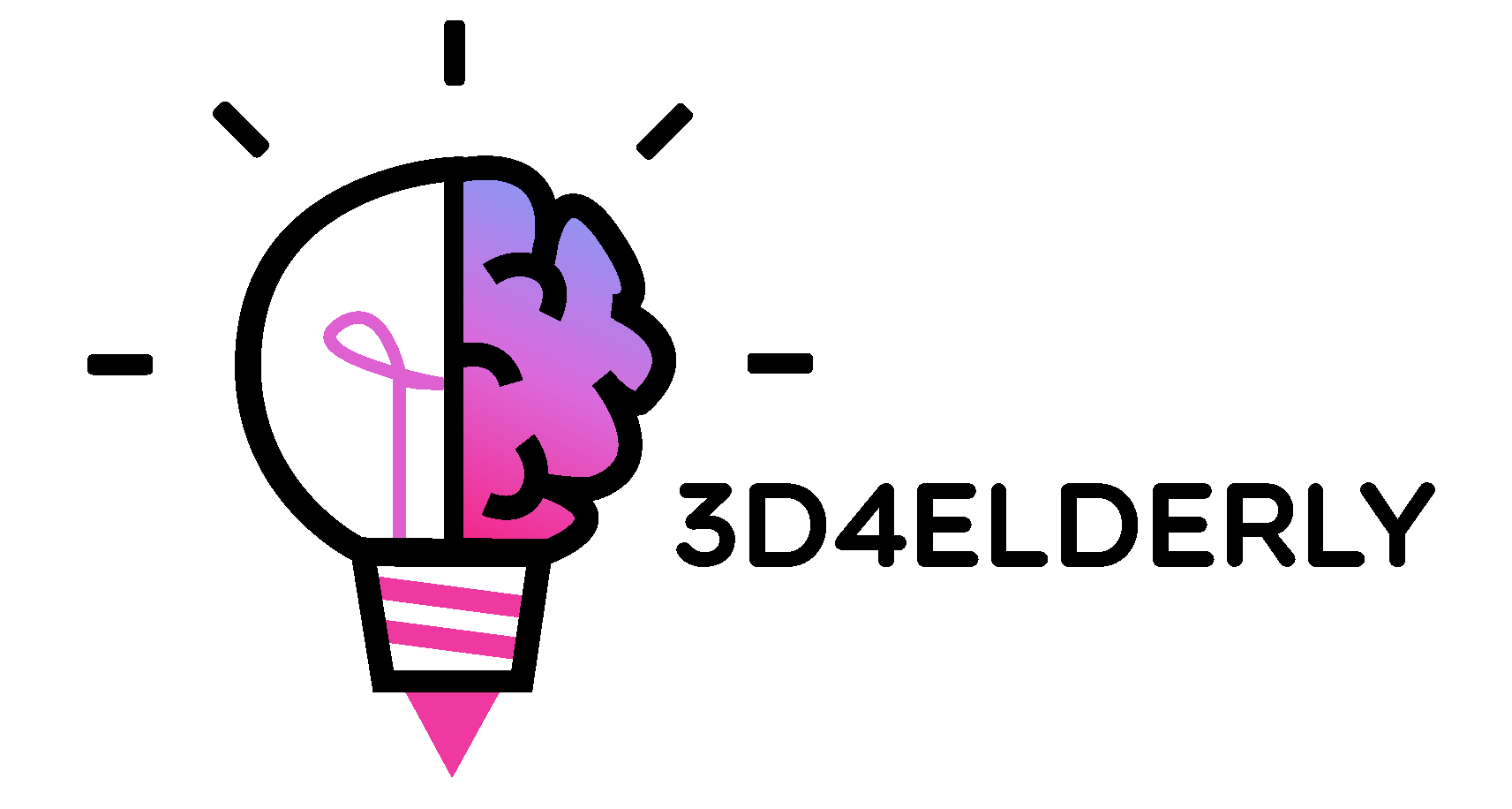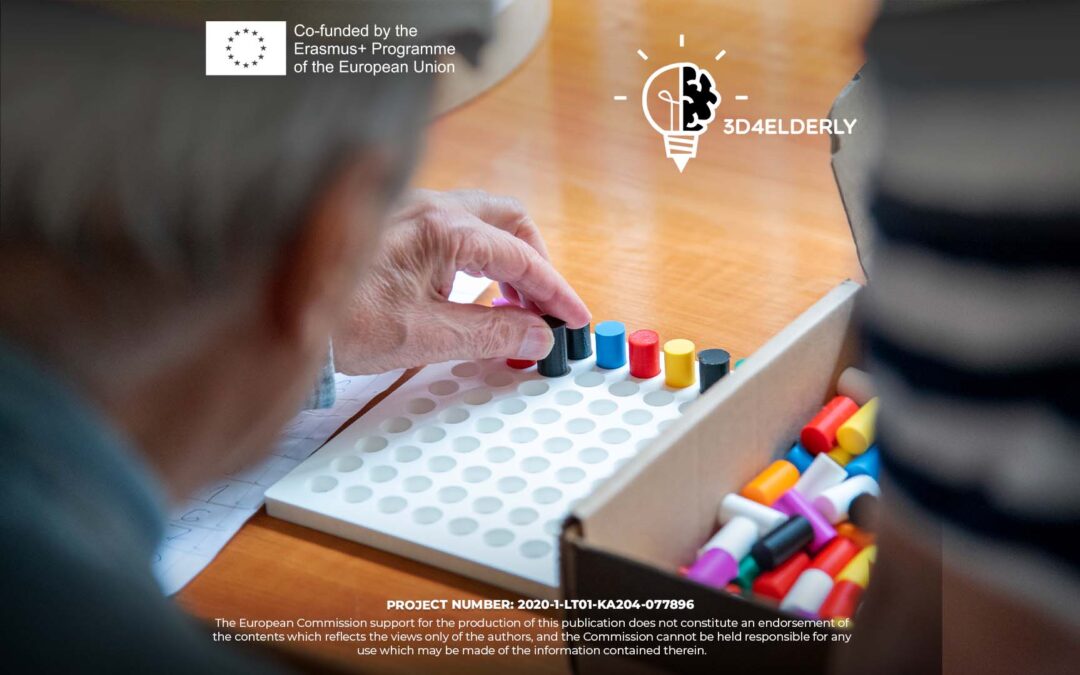It is a story about a pilot phase of an innovative approach combining the new technologies and the aim for a friendly and assessable manner of supporting people with dementia.
Alzheimer Bulgaria Association participates in a project for development and implementation of games which aim is contribution to the dissemination of social inclusion through the playful approaches. Using the new 3D technology, the quality of work of carers and staff caring for Alzheimer’s and elderly people with dementia improves, as well as the quality of life of patients.
The importance of social interactions between people with dementia, as well as with their loved ones, and creative engagement with others, should be seen as important aspects of the quality of care.
The developed handout contains 15 games all made on 3D printer which have a positive effect stimulating the cognitive functions – memory, imagination, communication of people with dementia which slow down the development of the disease. Detailed instruction was presented – the place and way of playing the games and suitable dementia stage of the adult playing the games. The teamwork supports the smoother communication and the entertainment way stimulates positive emotions of the participants. It is crucial for the elderly with dementia, their relatives, and professional caregivers.
Alzheimer Bulgaria Association endorses the concept for implementation on the national level the developed games in the standardized system of care for people with dementia, due to 3D technologies support the cognition of people with dementia. Due to implematation of the 3D games project the Association encourages the development of national strategies for the care of people with dementia, based on the principles of social inclusion, creative commitments and cognitive incentives for people with dementia.
The most valuable point is that the games are suitable for professionals at day centers and residential services, as well as for family members caring for a loved one with dementia. It is suitable for people with mild to moderate dementia. Created, tested and described games help people with dementia in maintaining their short-term memory, stimulating memories, concentration, coordination and planning. Last but not least, the activities are a pleasant and useful way to spend time with people with dementia, as well as it supports their social inclusion. When the games were tested by the project participating countries, some of the people with dementia live in a family environment, others were located in care homes. Based on the results, people with dementia enjoy using the suggested materials. They support improving the social interaction between the family members, also the atmosphere at the care homes. Another advantage of the games is a closer contact and more frequent communication.
3D technologies provide user friendly, well-accepted and person-centered approach that increases the non-medical techniques in the long-term care for people with dementia. We strongly believe that this approach will become a part of the standards in policies for elderly with dementia and their families.
The Bulgarian pilot group for this project consists of 12 people with dementia. All of them are residents at a nursing home nearby the capital city Sofia. For diversity reasons, the trail included also 5 families – a person with dementia and his/ her caregiver. One of the couples has agreed to be filmed during the test process – all the way from the instruction phase going through the playing time to the feedback. The caregiver has shared her opinion regarding the variable participant success rate of the games. As per her understanding her relative with dementia was less interested in some games rather than others because of the lack of basic knowledge of the activity. For example, “the 3D cube” which is engraved with different objects each side, was not attractive to this participant. The supposed reason could be the indifference regarding the household items 3D printed on the cube. Exactly the opposite, another game which is completely atypical for Bulgaria – “the peg mosaic” game was extremely attractive for the participant.
The received feedback from the play with “the building blocks” draw our attention to the participant’s need of preliminary set scheme for making a model but free play activities. It was unexpected somehow because the profession of the person with dementia was an Engineer – during his entire work experience he was planning, designing and developing projects.
We were glad to find out that the game called “Domino math” which is suitable for the prevention of cognitive decline, brought entertainment and joy to the participant. As a benefit of the close collaboration and support of Alzheimer Bulgaria Association to the dementia caregivers, even some suggestions for absolutely new games were shared based on experience and observations.
Please feel free to explore more about us at Home page – Alzheimer Bulgaria Association (alzheimer-bg.org). You’ll have the opportunity to review the latest news of our new projects, to meet remotely our team of hardworking staff and volunteers, and more than welcome to support us in the upcoming events and incentives.

